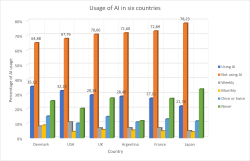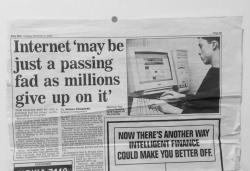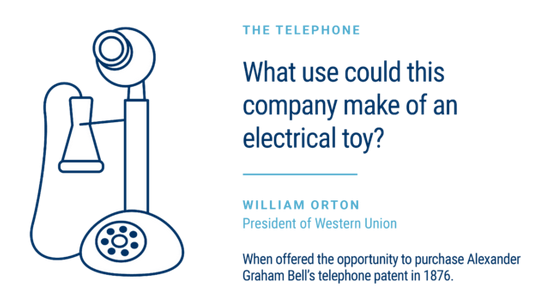According to this, not.
(Ref.: What does the public in six countries think of generative AI in news? survey)

AI is still in its infancy. Those who lived the IT-bubble of 2000 can relate.

British newspaper Daily Mail wrote in its December 5th 2000 issue about Internet. At that point, it was obvious: Internet wasn't a passing fad. Publishing that article back in -95 might have been sane. Just before the bubble was about to burst, not so much.
Let's dig up more examples. When we're faced with technology leap, our reactions can be surprising.

On hindsight (that's always 20/20), it would have made sense to see the vastly improved user experience on communications. Spoken word versus written word isn't a fair fight. Spoken word wins when communication target is time-sensitive and message is brief. Today, most of use don't use our pocket computers for phoning, we use them for writing and reading messages.
How about transportation?
If I had asked people what they wanted, they would have said faster horses.
A phrase Henry Ford did not say. There is a Harvard Business Review story about this.
Not that the line makes sense in any case.
Because “faster” wasn’t the selling point of cars over horses.
Speed wasn’t the problem.
Spending huge amounts of money, time, and space on keeping horses alive and dealing with the literal horse shit was the problem.
So, yes. We will use AI. We are already using AI. It's just like with Internet, telephone or cars. We're learning how to use them. Gartner seems to place generative AI on top of their Hype Cycle for Emerging Technologies 2023:

That translates into falling flat with most ridiculous use-cases of AI and sane ones remaining. Before that happens I'll keep using AI, chuckling when it makes a silly mistake and nodding in acceptance when it speeds up my task-at-hand.





